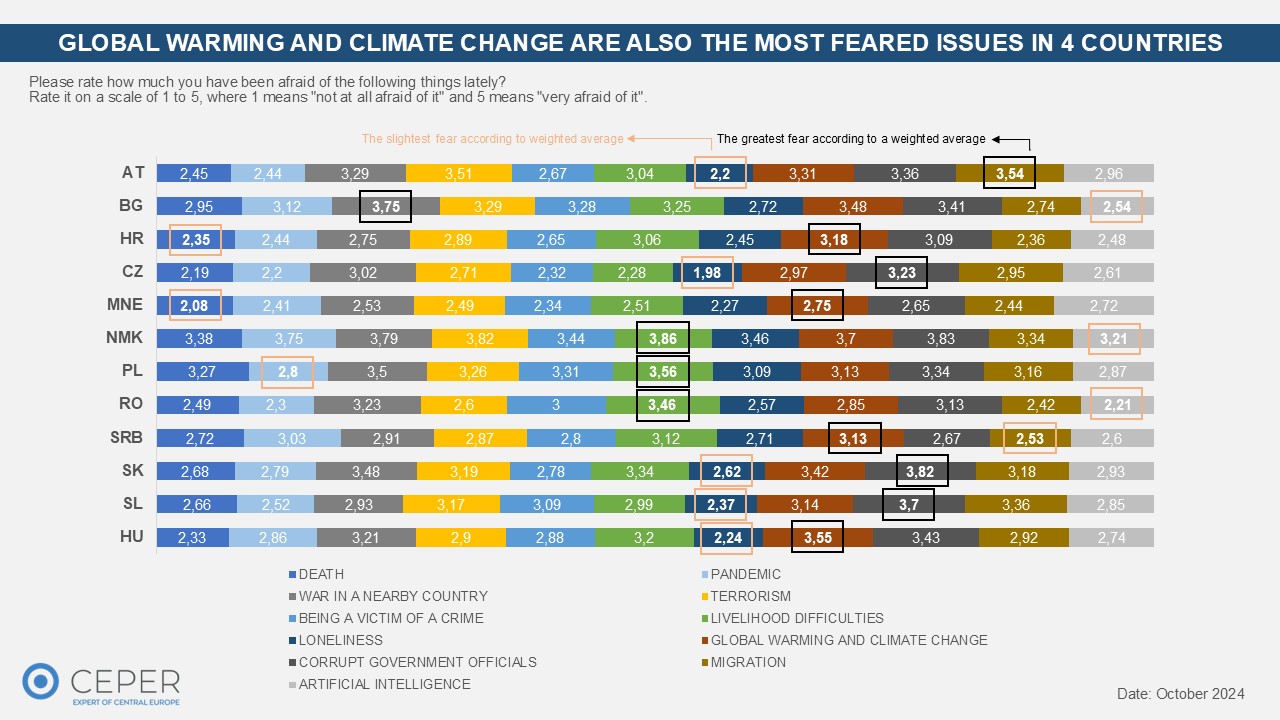CEPER: FEAR BAROMETER 2024 – What Do the People of Central Europe Fear the Most?
CEPER’s latest study, the Fear Barometer 2024, reveals the greatest worries of Central Europe's population. The research was conducted in 12 countries across the region, with representative samples of 1,000 respondents per country. Participants were asked to evaluate 11 fears on a five-point scale, where 1 meant “not afraid at all” and 5 indicated “very afraid.” These scores were used to calculate the fear index, which measures the intensity of concerns.
The results show that the greatest concern is caused by climate change and global warming. These issues ranked at the top of the index in four countries, including Hungary, Croatia (3.18) and Serbia (3.13). In Hungary, climate change was the most significant worry, with an average index of 3.55.

North Macedonia stands out as an exception, where economic hardships lead the fear rankings with an outstandingly high fear index of 3.86. A similar trend is observed in Poland (3.56) and Romania (3.46), where economic insecurity also dominates.
Geopolitical tensions, particularly the Russia-Ukraine conflict, have further increased anxiety levels across the region. The concern of “war in a neighboring country” has been steadily rising: in 2020, 27% of respondents identified this as one of their top worries, increasing to 31% in 2021 and nearly half of respondents in 2024 reporting significant concern about this threat.

The study also highlights that women in the region generally report higher levels of fear than men. In the category of “war in a neighboring country,” women’s average index is 3.39, compared to 2.99 for men. Fear of climate change is also particularly pronounced among younger generations: respondents aged 18-29 have an average fear index of 3.15, significantly higher than older age groups, who are more concerned about corruption.
The Fear Barometer 2024 serves as an essential tool for policymakers to better understand the worries of the region's population and respond more effectively to the concerns caused by climate change, the threat of war, and economic challenges.

The poll was conducted in 12 Central European countries: Austria, Bulgaria, Croatia, Czechia, Hungary, Montenegro, North Macedonia, Poland, Romania, Serbia, Slovakia, and Slovenia. Data collection took place between August 19 and September 5, 2024. The survey was conducted by telephone in each country, with personal interviews in Serbia. The sample in each country was representative by gender, age, and type of settlement.
Find more details about the study here.